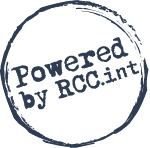
Workers in the informal economy are not protected by labour legislation, neither are they subject to social protection benefits. Data on informality in the labour markets of the Western Balkan economies are scarce, and gender-disaggregated indicators are often missing.
Women are more likely to work part-time than men in all WB economies, except for Montenegro that shows no gender gap. On average, part-time employment accounted for 20.3% of women’s employment, and 16.1% of men’s in the Western Balkans. The share of women in part-time employment was lower than the EU-27 average of 29.7% in 2020. In contrast, men’s share in part-time in the Western Balkans was higher than the EU-27 average of 8.4% in 2020.
| 2018Q1 | 2018Q2 | 2018Q3 | 2018Q4 | 2019Q1 | 2019Q2 | 2019Q3 | 2019Q4 | 2020Q1 | 2020Q2 | 2020Q3 | 2020Q4 | 2021Q1 | 2021Q2 | |
|---|---|---|---|---|---|---|---|---|---|---|---|---|---|---|
| Albania | 39,65 | 37,26 | 36,09 | 37,01 | 38,27 | 38,33 | 38,41 | 38,53 | 37,44 | 35,76 | 36,33 | 36,91 | 35,45 | 35,71 |
| Bosnia and Herzegovina | 15,9 | 16,9 | 18,2 | 16,1 | 13 | 14,6 | ||||||||
| North Macedonia | 10,6 | 14,7 | 14,4 | 10,6 | 12,4 | 12,4 | 11,6 | 7,7 | 7,5 | 9,7 | 8,3 | 8,8 | 7,3 | 9,9 |
| Serbia | 19,7 | 21,7 | 21,6 | 19,6 | 18,2 | 19,5 | 19,1 | 19,2 | 17,1 | 17,2 | 19,4 | 17,8 | 12,2 | 14,7 |
| WB average | 23,3 | 24,6 | 24,0 | 22,4 | 23,0 | 23,4 | 23,0 | 21,8 | 19,5 | 19,9 | 20,6 | 19,9 | 17,0 | 18,7 |

Source:
ILOSTAT, 2022 for Bosnia and Herzegovina, North Macedonia and Serbia; INSTAT for Albania
| 2018 | 2019 | 2020 | |
|---|---|---|---|
| Women | |||
| EU-27 | 32,0 | 32,0 | 29,7 |
| Albania | 22,80 | 21,60 | 23,20 |
| Bosnia and Herzegovina | 14,94 | 14,05 | 15,26 |
| North Macedonia | 14,87 | 17,52 | 27,77 |
| Montenegro | 7,31 | 6,83 | 8,51 |
| Serbia | 23,21 | 23,24 | 25,24 |
| Kosovo* | 9,86 | 19,26 | 24,93 |
| WB average | 15,50 | 17,08 | 20,82 |
| Men | |||
| EU-27 | 9,1 | 9,2 | 8,4 |
| Albania | 14,80 | 13,50 | 14,40 |
| Bosnia and Herzegovina | 10,81 | 9,99 | 9,30 |
| North Macedonia | 11,58 | 12,60 | 22,35 |
| Montenegro | 7,46 | 7,32 | 8,75 |
| Serbia | 17,83 | 17,71 | 18,38 |
| Kosovo* | 8,07 | 12,45 | 21,80 |
| WB average | 11,76 | 12,26 | 15,83 |

Source:
INSTAT for Albania, and ILOSTAT (2022).
